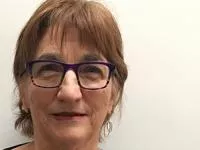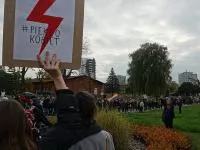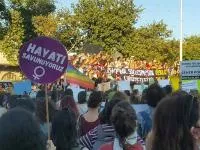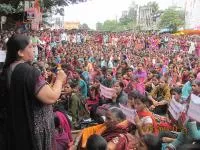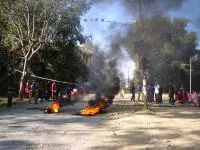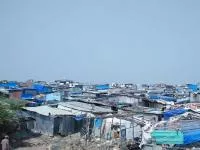GD 12.1 - April 2022
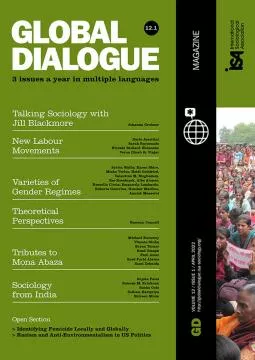
Global Dialogue is available in multiple languages!
Select the language to download the issue.
Editors:
Brigitte Aulenbacher, Klaus Dörre.
Assistant Editors:
Raphael Deindl, Johanna Grubner, Walid Ibrahim.
Associate Editor:
Aparna Sundar.
Managing Editors:
Lola Busuttil, August Bagà.
Consultants:
Michael Burawoy.
Media Consultant:
Juan Lejárraga.
Consulting Editors:
Sari Hanafi, Geoffrey Pleyers, Filomin Gutierrez, Eloísa Martín, Sawako Shirahase, Izabela Barlinska, Tova Benski, Chih-Jou Jay Chen, Jan Fritz, Koichi Hasegawa, Hiroshi Ishida, Grace Khunou, Allison Loconto, Susan McDaniel, Elina Oinas, Laura Oso Casas, Bandana Purkayastha, Rhoda Reddock, Mounir Saidani, Ayse Saktanber, Celi Scalon, Nazanin Shahrokni.
REGIONAL EDITORS
Arab World: (Tunisia) Mounir Saidani, Fatima Radhouani, Habib Haj Salem; (Lebanon) Sari Hanafi.
Argentina: Magdalena Lemus, Juan Parcio, Dante Marchissio.
Bangladesh: Habibul Khondker, Khairul Chowdhury, Fatema Rezina Iqbal, Helal Mohiuddin, Mumita Tanjeela, Bijoy Krishna Banik, Sabina Sharmin, Abdur Rashid, M. Omar Faruque, Mohammed Jahirul Islam, Sarker Sohel Rana, Md. Shahidul Islam, A.B.M. Najmus Sakib, Eashrat Jahan Eyemoon, Helal Uddin, Masudur Rahman, Shamsul Arefin, Yasmin Sultana, Syka Parvin, Ruma Parvin, Saleh Al Mamun, Ekramul Kabir Rana; Sharmin Akter Shapla, Md. Shahin Aktar.
Brazil: Gustavo Taniguti, Angelo Martins Junior, Andreza Galli, Dmitri Cerboncini Fernandes, Gustavo Dias, José Guirado Neto, Jéssica Mazzini Mendes.
France/Spain: Lola Busuttil.
India: Rashmi Jain, Manish Yadav, Rakesh Rana.
Indonesia: Hari Nugroho, Lucia Ratih Kusumadewi, Fina Itriyati, Indera Ratna Irawati Pattinasarany, Benedictus Hari Juliawan, Mohamad Shohibuddin, Dominggus Elcid Li, Antonius Ario Seto Hardjana, Diana Teresa Pakasi, Nurul Aini, Geger Riyanto, Aditya Pradana Setiadi.
Iran: Reyhaneh Javadi, Niayesh Dolati, Sayyed Muhamad Mutallebi, Elham Shushtarizade.
Kazakhstan: Aigul Zabirova, Bayan Smagambet, Adil Rodionov, Almash Tlespayeva, Kuanysh Tel, Almagul Mussina, Aknur Imankul, Madiyar Aldiyarov.
Romania: Raluca Popescu, Raisa-Gabriela Zamfirescu, Irina Elena Ion, Bianca Mihăilă, Alina Alexandra Nițoiu, Ruxandra Păduraru, Ana-Maria Rențea, Maria Vlasceanu.
Russia: Elena Zdravomyslova, Daria Kholodova.
Taiwan: Wan-Ju Lee, Tao-Yung Lu, Yu-Wen Liao, Tsung-Jen Hung, Po-Shung Hong, Yi-Shuo Huang, Yun-Yen Shen, Chien-Ying Chien, Yu-Chia Chen.
Turkey: Gül Çorbacıoğlu, Irmak Evren.
GD 12.1 - April 2022
Editorial
Universities and science are undergoing far-reaching changes as a result of their marketization or quasi-marketization under neoliberal governance. In this issue of Global Dialogue we take up this topic in our section ‘Talking Sociology.’ Jill Blackmore has been studying the profound restructuring experienced by Australian universities over the last decades. In this interview she elaborates on these restructurings, the forces that drove them, and the effects they have on academic knowledge production and epistemic justice.
The first symposium presents parts of a global research collaboration on diverse workers’ movements. While Dario Azzellini examines the impact of the current pandemic on workers’ movements worldwide, including aspects of gender and race, Sarah Raymundo explores the traces of colonialism in the Philippines and its continued impact on trade union struggles. Hiroaki Richard Watanabe shows how the deregulation and liberalization of the Japanese economy has shaped union organizing and the challenges faced by workers today. Verna Dinah Q. Viajar examines the development of trade unions in Indonesia and their role in the overthrow of the Suharto regime, taking into account political and economic factors.
On the one hand, the transformation of capitalism that has been going on for more than five decades has affected gender regimes in many countries. On the other hand, deep ongoing changes in gender relations, ways of living and the welfare state have challenged the established division of labor, care responsibilities, and norms and values in different areas of social life. Sylvia Walby and Karen Shire, both experts in theoretical and empirical research on the relation between capitalism, crisis and gender, organized a symposium on the varieties of gender regimes. It maps the differences and commonalities in gender relations, arrangements and regimes across different countries and sheds light on international tendencies of our time. It also shows how the varieties of capitalism and the welfare state are strongly interwoven with varying modes of reorganizing and reshaping gender regimes.
The section ‘Theoretical Perspectives’ continues this reflection on gender and society but from a different perspective. Raewyn Connell, pioneer and most renowned representative of men’s studies, retraces this research strand and analyzes how societal and scientific developments led to new perspectives on masculinities.
It is with great sadness that we learned about the passing of Mona Abaza, who died on July 5, 2021. In this issue, colleagues and friends worldwide bid farewell to this exceptional sociologist.
The country focus of this issue, organized by the prominent sociologist and social theorist Sujata Patel gives impressive insight into today’s sociology in India. Established and young scholars have collaborated to this section by sharing their reflections on many important issues, including how their sociological fieldwork is challenged by issues like violence, inequality, or discrimination.
In our ‘Open Section’ we have started a collaboration with ISA’s journal Current Sociology. Ian Carrillo, who works on racism and anti-environmentalism in the USA and Myrna Dawson, who investigates femicide followed our invitation to share their scientific work with the wider academic and non-academic audience of Global Dialogue.
Brigitte Aulenbacher and Klaus Dörre, editors of Global Dialogue.
Global Dialogue can be found in multiple languages.
Submissions should be sent to globaldialogue@isa-sociology.org.

